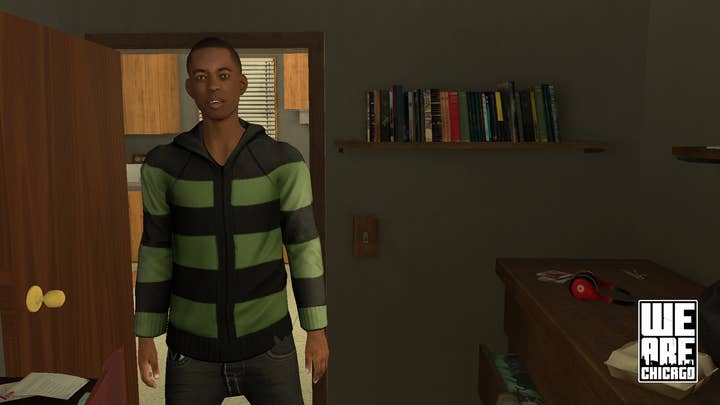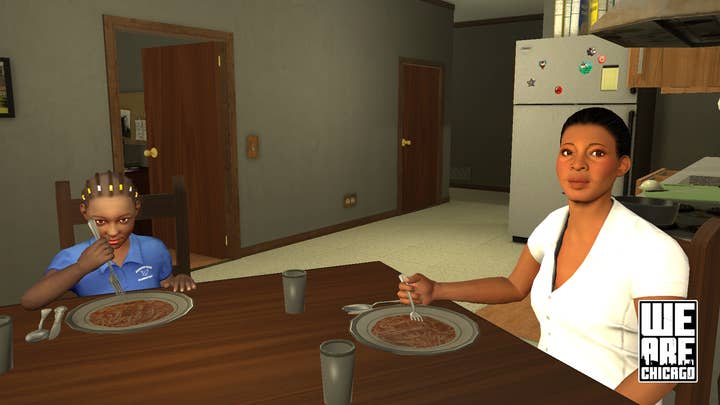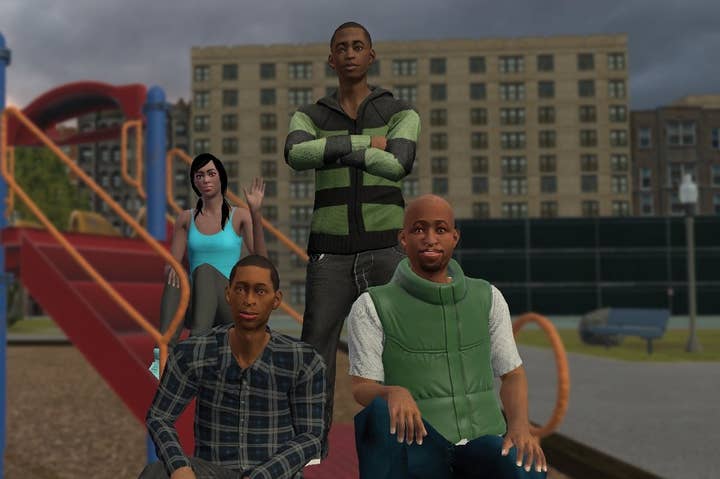South Side story: We Are Chicago
"I wanted to do something that was positive for our society"
When was the last time you played as a black character in a game who wasn't either a) the sidekick to a strapping white dude or b) a stereotypical gang member? We Are Chicago, from Indie studio Culture Shock, offers something different: a realistic representation of the life of a person of colour in Chicago's South Side neighbourhoods.
"It was interesting to think about how you make a game about something that's actually happened, a true story, and still give the player agency," explains studio founder Michael Block.
"So we were talking about those ideas. We're from Chicago and at the time we had started doing some volunteer stuff and talking to some people on the South Side, a very racially-segregated section of the city, very poor and has a lot of issues with gangs and violence. We realised it's a really interesting story and nobody is talking about this stuff."

This was the moment that led to the game I played a few weeks ago at GDC, which Block calls a documentary game, a game which gives players an insight into the world of high school student Aaron. During the very first scene, Aaron's family sits down to dinner, only to hear the sound of gunshots. It's shocking not because I've never heard a gunshot in a game before, but because the family carries on with dinner, discussing their situation but accepting the violence as part of the background to their lives.
"We brought on a writer from one of the neighbourhoods to write the actual dialogue"
Scenes like this aren't just based on Culture Shock's preconceived ideas about the South Side, but on the sort of research that would make any journalist proud.
"At the beginning we did interviews. We actually got really lucky: there was a non-profit group that we were volunteering with that basically blanketed the city with volunteers and they had a survey that could have been written for our game. Things like, what are you seeing in your neighbourhood that could be problematic? What are the things that you're seeing are really good? Are you seeing any solutions that are working well? What do you wish was there?"
"From that we were doing interviews with people at bus stops on the South Side and we just asked a bunch of people all these questions and then gave that all back to the non-profit. Then we met a whole bunch of people who we were volunteering and people that they knew and put us in touch with and we did more in-depth interviews."
As well as researching their subject matter, We Are Chicago took their commitment to representing the stories into the studio via recruitment.
"We brought on a writer from one of the neighbourhoods to write the actual dialogue. So we had the outline in place, we had the ideas that we wanted to talk about and we went to him and said 'let's figure out how to make this into a narrative arc'. Then we brought on environment artists as well from the neighbourhoods that we were looking at to work on the content of the game and they've also looked over the script and made sure everything makes sense to them as well."
Block and his team also plan to continue working with the non-profits of Chicago, taking a build of the game to a couple of schools in Chicago to do play-testing with young kids and to make sure that the game is true to their experiences. He also reveals that he plans to do a revenue share with some of the non-profits, as a way of giving back.

That's Block's motivation here, and it's a noble one. We Are Chicago is a difficult game to make and difficult game to sell, but its importance to its creators goes beyond simple profit and loss.
"I'm working on this project because for all of my career - I've worked on Organ Trail and I've worked at mid-sized studios before and released other games - I didn't really feel like they were having the impact I wanted to have. I wanted to do something that was positive for our society and our community and so this feels very important to me personally because it feels like I'm able to achieve that," says Block.
"We've had some really great responses from people. Seeing some people express more racist sentiments and ideas and then after playing the game actually not express those things is really validating and really satisfying, to think that we might actually be able to have that impact. It's a very strong connection for me because I'm hoping that we can prove that this is possible with games and that we're doing it."
We Are Chicago will be released this year on PC, Mac and Linux.

